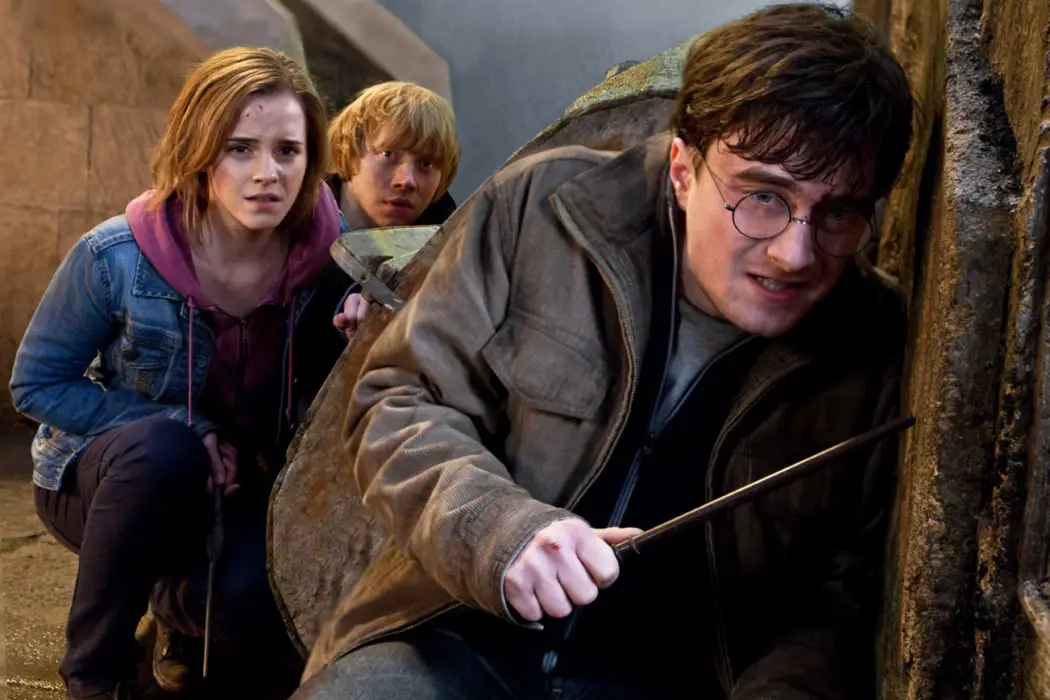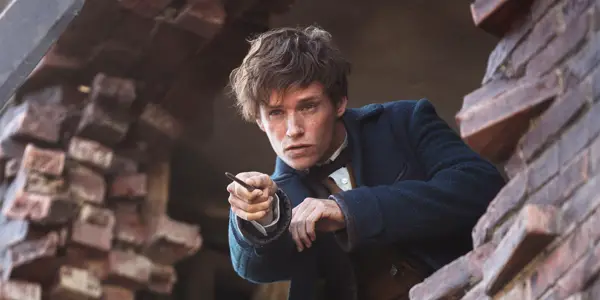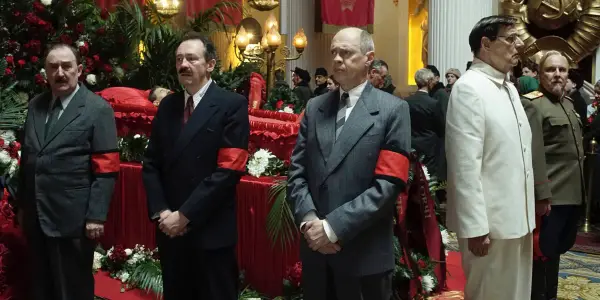Lumos: The Political Power & Influence Of The HARRY POTTER Generation

22. Film Critic and Journalist. Lover of Digital and Celluloid
A form of political agenda has been present in film since the dawn of cinema. Notable instances range from D.W. Griffith inadvertently causing a second wind in the white supremacist group the Ku Klux Klan with his nationalistic juggernaut of The Birth of a Nation in 1915, famed German director Leni Riefenstahl infamously directing ‘Triumph des Willens’ (Triumph of the Will), a propaganda piece romanticising the right wing Nazi party, and Staunch leftist Ken Loach’s 2016 haunting drama of the epidemic of budgets cuts and threats of the British N.H.S. in I, Daniel Blake.
These examples are the documentation of real-life political scenarios that have plagued or will inflict significant misery upon innocent people. Documentarian or not, they are moments of self-reflection and dramatic consequence that are authentic and raw. Cinema gives the world a chance to critique and expose the bleak areas of humanity and its history. But what if the genre changes from hard-hitting drama to pillow fighting fantasy. Is the impact of such serious issues lost in the momentum of action set pieces, or are remnants of contextualization still apparent for the target audience?
YA adaptions of Harry Potter and The Hunger Games are two of the most financially successful series that implement a significant element of the political underbelly and ultimately form the strongest culprits for exercising a political undercurrent and undercutting said theme with action spectacle. The former adapted from the series by J.K. Rowling is a clear study of political and racial prejudice of the fight against a rising dictator, who wants to destroy a race of people who were not born like him or are considered his equal due to his inherited birth right.
Rowling is open with the reflecting nature of her series and resulting franchise to the current climate. The parallels between racial prejudice and political difference create an interesting allegory of the times we live in, yet such a staunch theme is often left in the wind with action spectacle that arises in its place.
The “Harry Potter Generation”
Given, it’s a crucial element to get bums on seats and audiences to buy the DVD and Blu-Ray for repeated viewings after the fact, but does the political element have enough resonation to truly have the impact it deserves? To teach those who live in such a time that’s reflective of real life in the film property that such prejudice exists and carries haunting weight.
The latest primary British and American elections of 2017 and 2018 for power resulted in some of the biggest turnouts for young voters in the history of both countries, 18-29 in the US making up 13 percent of the total midterms turn out, up from 11 percent from 2014. 60% of voters ranging from 16-24 in the UK voted for Jeremy Corbyn and Labour. The highest of 25 years in a general election with 61% of over-64s voting Conservative.

This is what I like to coin as the “Harry Potter generation” at work. It is undeniable to suggest that other motions are at work here. Austerity and cuts are at an all-time high, but in the age of multimedia influence, it would be pedantic to state that Rowling‘s material hasn’t been a major influence on those who have grown up and absorb the ideology of openness and hope with the franchise earning over $2,391,805,822 in total and each installment earning an average of a whopping $265,756,202.
The age of Rowling is far from over, aside from being a talking piece of Twitter. The Harry Potter franchise has had a resurgence of sorts in the five-film prequel series in the works aptly titled Fantastic Beasts. The collection of films take place from 1927 until 1945 – a pinnacle period of the fate and future of humanity. A clear and on the nose reference to the rise of Adolf Hitler, Fascism and Nazism with contextual parallels of evil wizard Gellert Grindelwald and his domination of muggles. A clear allegory of the resulting prosecution of millions of innocent Jews, in this case of muggles, who were slaughtered in the name of a true blood race, but also reflects the political stance of Donald Trump and the prosecution of countless innocent people and ideology of immigrants that are being wrongfully prosecuted because of their identity and faith.
It will be of course the test of time in the latest generation of the intended target audience when their time comes to change the world, to see if Rowling has achieved the true purpose of her influence subconsciously or as strongly as she has. However, if box office gross is a clear indication of influence and power the franchise has with the first installment earned a soaring $814,037,575 worldwide, and its sequel at the time of writing this article earning $470,041,406 worldwide in just under two weeks of release.
The comfort of a fantasy realm
The teaching of compassion, admiration and love to all around is apparent and rich, yet the cynical and cyclical nature of the world is still an often stone throw away. If times become bleak and austerity continues to the harsh extent, with gentrification and budget cuts hitting both the US and the UK hard. Will audiences slowly retort to avoiding reading between the lines with fans unable to afford such a lucrative option of cinema and art in general and just find the comfort in the fantasy realm? One can almost see the tragedy of ignorance creep through in times where it’s almost easier to turn a blind eye to bigger social issues than raise your voice in action.
Suzanne Collins’ ‘The Hunger Games‘ series is a significant influence to watch and see such a young audience absorb. If Rowling’s franchise has often left the ideology of the series in the background, ‘The Hunger Games‘ series has had it directly at the forefront. Taking place in a dystopian dictatorship of Panem, split into districts after a catastrophic nuclear world war. We see the characters forcefully take part in an annual Hunger Games tournament implemented by the government to honour and remember that of the great war, in which children volunteer for a return of crops and food for their villages, a clear indication of austerity in the social system.
In the games, said children are forced to fight each other in an arena to the death. Comparable of that to Kinji Fukasaku’s influential Japanese masterpiece Battle Royale (Fukasaku, 2000), which also puts forth a similar scenario, albeit in different circumstances of youth disorientation and neglect in a far right wing world and the rise of youth activism as a result.

The fascist element of Collins‘ films is clear and compelling. Dictator President Snow played by Donald Sutherland (The Eagle Has Landed, Don’t Look Now), a power-hungry leader running a controlling and censoring government fighting against rebels with Katniss Everdeen played by Jennifer Lawrence as their symbol for freedom is the stance of the series – even in the penultimate chapters of the saga in Mockingjay Parts I and II, as the conventional story beats of good overcoming the bad arises. Collins subverts certain expectations and scenarios to reflect the nefarious and materialistic aspect of politics. Even the side you fight for isn’t necessarily the clean cut innocent party fighting for an idyllic utopian society.
It is unquestionably far more mature and nightmarish than Harry Potter, both in story and execution. Yet the influence of a stronger morally conscious, as well as ambiguous storytelling, does incite interest in the possibility of a far more pessimistic and cautious generation that has been influenced by the severe consequence of a fascist regime that has taken over due to the influence and brainwashing of its people for the better of mankind, when in fact it only serves to protect the wealthy. A now well-known resemblance to our own dumbfounded society in which the rich become richer and the poor become increasingly more poor.
The influence of The Hunger Games is still young, yet already fighting an uphill battle of relevancy in the public eye, with only four films that had the lifespan of three years and in the middle of a developing generation earning franchise in total a $1,451,538,526 gross with an average of $362,884,632 earned with each installment. A tamer taking when compared to that of Harry Potter‘s eight-film series and prequel saga that will take its lifespan to what is essentially a two-decade influence.
However, one can only surmise that the thematic threads of such an important and beneficial film in the likes of The Hunger Games will be lost on the youth of today in the wind of constant and aggressive onslaughts of a saturated market in terms of redundant and flat blockbusters with The Divergent series earning a franchise killing average of only $115,770,339 with each entry and total worldwide gross of $347,311,018, and as of late The Darkest Minds earning a horrendous gross of just $41,142,379 respectively. However, if the fantasy genre is not waning anytime soon, what of the subversion within the genre and are older audiences beginning to bite the bullet?
Political Subversion
The opposite end of political subversion found in the realm of the satirical or comedic subversion in film is typically crafted at a precedent of inconsequential and morally ambiguous elements of lustful power and social neglect. The political satire genre is a hub of critically acclaimed features but typically fails to convey a manner of edge and stigma.
Armando Iannucci’s The Thick of It and The Death of Stalin are two recent cinematic examples of modern British coalition politics between the U.S. and UK and past destructive and inept forces of governments of the Soviet Union, respectively. Aimed at an older and more dramatic target audience on limited releases. Iannucci’s latest earned a moderate financial success of $24,640,027 for a rather dire subject and niche market of Soviet comedic expose. An impressive run but only a quarter of the opening weekend of even the lowest grossing Hunger Games and Harry Potter franchises.

Political subversion has even hit the genre of puppetry comedy in the satirical anti-American agenda of Trey Parker and Matt Stone’s infamous Team America: World Police, yet only just managed to make back its own budget and marketing costs at a total gross of $50,907,422. The thematic thread of politics in any form of artistic impression is a dangerous tight rope to cross for monetary game.
More so now than ever in cinema, of which is reflecting the consequences right wing political beliefs in an abrupt and quick fire fashion. The possible future of less successful cinematic properties that fight such ideals as fascism, homophobia and racism are becoming more and more less prominent in the public eye.
It does inflict a slight fear in an era that needs art and the beauty of such to tackle subjects on grounds that aren’t always covered via demonstrations or a movement on twitter and with the shutting down of such sites as FilmStruck and Movie Pass it doesn’t fill one with confidence. However, with 165 million cinema tickets sold in UK cinemas each year alone. Cinema still has a chance to stand tall and provide for its audience, as we all patiently wait for the next successful franchise that can raise an army of activists and fighters who stand up for their rightful beliefs.
Conclusion
It is clear that an action-oriented subversion is a more accessible option with a greater chance of higher access with the sacrifice of critical acclaim, but whoever said that Hollywood wasn’t a business. The influence of political agenda is at its most effective on those who are still developing, who are open to having their thoughts and emotions stimulated in a target audience who understand the depth of hatred and are open to loving others and themselves.
If the Harry Potter generation has ultimately changed the face of self and open acceptance of others on race or religion, Suzanne Collins’ Hunger Games series has built and informed a generation of fierce political activists in the making. Of whom of which the Right should be frightened, fear and ultimately respect.
A generation that is waiting in the wings and watching each and every move played out that is destroying our planet and social system as we speak in every inch they can. It is to quote the late great Carrie Fisher’s Princess Leia in these trying times of urgent action with “Hope”. Let us all install and restore the merits of such a feeling and undoubtedly those who do not will receive the message loud and clear and act on the lessons of history they’ve profited upon for far too long.
Do you think the “Harry Potter” generation has begun to take charge of the political directions of the future? Let us know in the comments below!
Does content like this matter to you?
Become a Member and support film journalism. Unlock access to all of Film Inquiry`s great articles. Join a community of like-minded readers who are passionate about cinema - get access to our private members Network, give back to independent filmmakers, and more.













